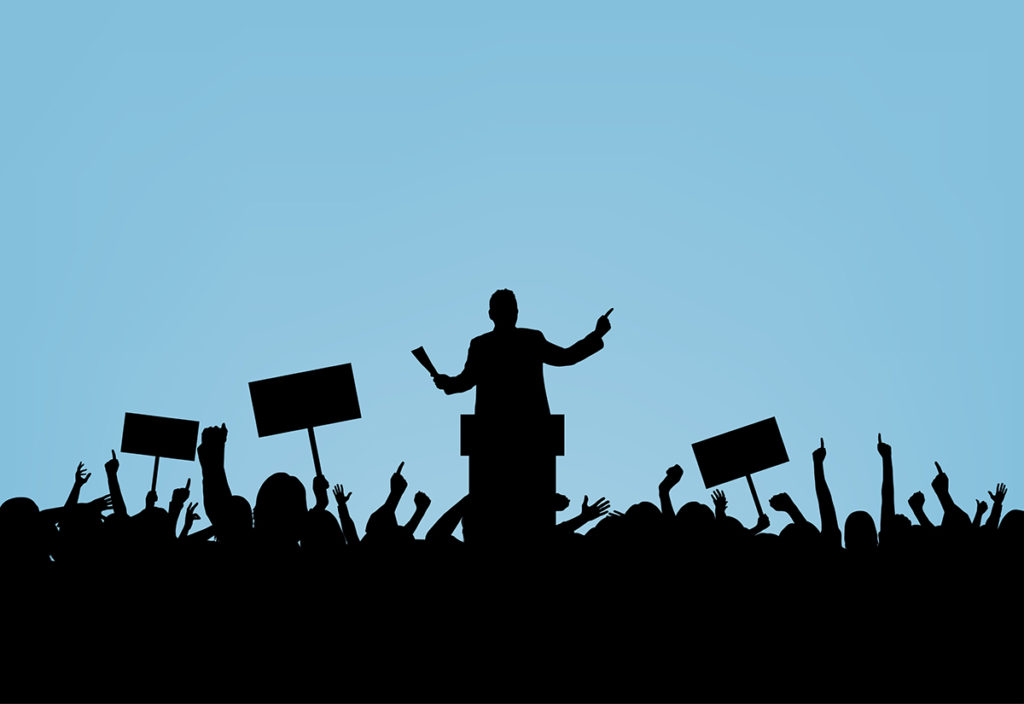In this election season and in connection with the launch of my book (Temporarily Rector. Public Interventions. 2013-2017, edited by Sul, Sol e Sal), I wanted to share what I have learned about the exercise of power.
I am well aware that the excellent bibliography on this topic is vast and that I will not add anything fundamentally new to what is already known.
Nevertheless, it seems to me that this knowledge is one that is easily forgotten, the forgetting being favored by the very nature of power, on the one hand, by the collective lack of commitment, on the other, and also by the weak level of commitment of the individual mechanisms of ethical surveillance – or by the variable combination of these factors.
In a democracy, power emanates from a collective, is exercised in its name and is legitimized exclusively in it. This explains why legal documents speak mainly of "competencies" (that is, limited capacities provisionally assigned to the individual chosen by the community to exercise a certain power function) and that this exercise is called "mandate": power of attorney, delegation, authorization to act on behalf of others. This also means that the community must not give up participating in decision-making processes and permanently scrutinizing them, precisely so that he never forgets that the power is not his, but an extension of the power of those who elected him.
Hannah Arendt masterfully expressed this idea (which I chose for the epigraph of the book), taking the opportunity to contrast the concepts of "strength" and "power":
Power is always […] a potential of power, not an immutable, measurable, and reliable entity like force. While strength is the natural quality of an isolated individual, power comes to exist among men when they act together, and disappears the instant they disperse.. (The Human Condition)
I am well aware that Hannah Arendt refers to force and power as individual and social energies, respectively, but the power associated with an office is nothing more than a political mechanism for concentrating the energy generated by citizens acting together in a certain individual.
In this perspective, power is potentially beneficial, as it enables the carrying out of actions that promote the common good, with the individual being created and creature of this transforming energy. And it is also true that when the community disperses (that is, it disappears as a regulator and participant in the power exercised in its name), what remains is something we still call power, but which in reality is only force. Authoritarian bosses seem to have a lot of power, but they have long since lost it, leaving only their individual strength – poor, unproductive and harmful.
My experience has shown that the exercise of power has at least two properties that it is worth paying close attention to: the first I call a “deceptive mirror”; to the second, “sneaky drunkenness”.
The deceptive mirror is created by the network that builds up around the individual, with the purpose of convincing him that the power he was invested with is effectively his, thus feeding his social vanity. It manifests itself in very different ways: through reverence, the uncritical use of titles, flattery, but, above all, the alienated attitude that consists in placing it at the center of the decision-making stage as the protagonist of a drama that is being witnessed, enjoying the moments of good or bad performance. It is a mirror and it is misleading because it gives the individual back a false image so strong that it seems real to him.
Sneaky drunkenness, which also results from the greater or lesser vigor of the deceiving mirror, is the process by which the individual sips the strength that the absence of active collective power gives him, without realizing that drunkenness is approaching - as when in a pleasant evening with friends he sips alcohol without realizing the intoxication that these repeated thoughtless and apparently harmless gestures will cause.
Is the responsibility for yielding these deforming engines of power solely his responsibility? No. The responsibility is shared by him and by the community that elected him and, later, abandoned him to his fate, abdicating his power and accepting that he becomes invested with a force that appears to be power. But today, knowing the bad state of democracy, every minimally serious and enlightened individual will know that the risks of a deceptive mirror and sneaky drunkenness exist, and it is their responsibility to find in themselves and in others the ability to counteract to limit these effects.
Therefore, if you do not have an active and attentive collective around you and want to escape these traps, the individual always has the possibility of providing himself with robust surveillance mechanisms, preferably based on loyal people who are able to alert him at all times, to reprimand him, to contradict him, to bite him in the shins, in short, to remind him of his dual condition of servant and creature. It's about helping you never lose sight of the fact that the job is a fact, but it's not the skin.
Author António Branco is a professor and was rector of the University of Algarve


















Comments